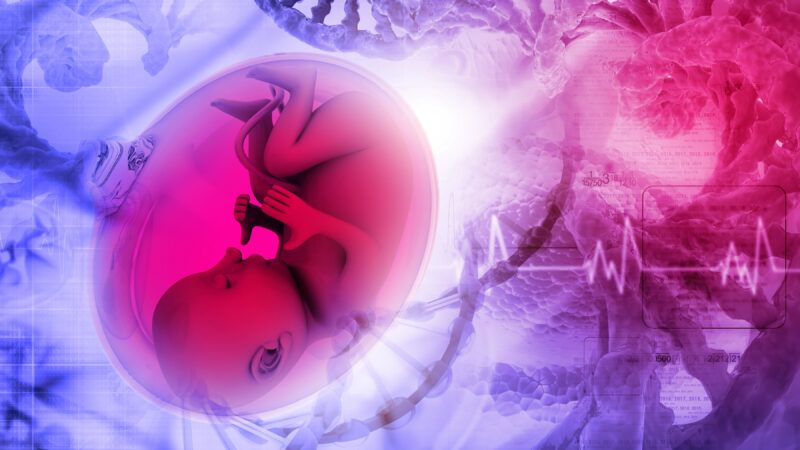Elon Musk, Artificial Wombs, and the Impending Shortage of Mars Colonists
"Synthetic wombs make having kids much faster, easier, cheaper, and more accessible."

Hysterical headlines are proliferating over a Twitter exchange between Tesla CEO Elon Musk, Ethereum co-founder Vitalik Buterin, and e-commerce platform Gumroad founder Sahil Lavingia musing over possible world population collapse and the desirability of creating synthetic wombs as a solution.
"Rich men suggest synthetic wombs should replace women," warns Insider Paper. Vice grumbles "Cryptocurrency Titans Newly Obsessed With Artificial Wombs." The always reliable Daily Star declares, "Billionaire crypto geeks say they want to replace human mothers with 'synthetic wombs.'"
This ginned up tempest of online moral outrage all began when Musk tweeted he is worried that there may not be enough people wanting to move to his Mars colonies due to a collapsing population here on Earth later in this century. Collapse may be too strong a characterization, but Musk is right that given prevailing global fertility trends world population will most likely peak around the middle of this century and fall back to about the current level by 2100.
Musk's glum observation about the impending shortage of Mars colonists provoked Lavingia to tweet back helpfully suggesting that greater investments in synthetic womb technology would make having kids much faster, easier, cheaper, and more accessible. Buterin subsequently chimed in with a tweet noting that "synthetic wombs would remove the high burden of pregnancy, significantly reducing the inequality." The convenience of gestating offspring in synthetic wombs would presumably encourage people to have (decant?) more babies, some of whom would grow up to be Mars colonists.
Setting the headline hysterics aside for the moment, how close to perfecting artificial wombs are researchers? Back in 2017, researchers at Children's Hospital of Philadelphia reported keeping premature lamb fetuses alive in plastic bags of amniotic fluid for four weeks. While the researchers' aim is a treatment for saving and bringing to term extremely premature human fetuses, this is nevertheless a step toward developing synthetic wombs for human gestatelings.
In March 2021, a team of Israeli researchers reported their success in growing developmentally normal mouse embryos for up to eleven days inside artificial uteruses. This is remarkable because full mouse gestation is around 20 days. In the future, said Paul Tesar, a developmental biologist at Case Western Reserve University School of Medicine, "it is not unreasonable that we might have the capacity to develop a human embryo from fertilization to birth entirely outside the uterus."
Concerning Buterin's suggestion that the advent of artificial wombs could level the economic playing field between women and men - and not minimizing the burdens of pregnancy - the main problem is the subsequent unequal division of the labor with respect to child-rearing.
Let's set aside for the time being the social and ethical issues that safely gestating human babies in bottles raise. Instead, let's focus on Musk's concerns about how to populate his Martian cities.
"Ectogenesis (artificial womb technology) could yield many benefits on Earth and provide a safe and sustainable way to populate an off-world human colony," argues Australian bioethicist Evie Kendall in her 2021 article "Ectogenesis for Space Exploration." Rather than use synthetic wombs to prevent population collapse here on Earth use them instead to populate Mars. Rocketing eggs and sperm to Mars has got to be a lot cheaper than transporting full-grown humans.
Kendall further explains, "Gestating foetuses in a protected and controlled environment could help prevent damage caused by radiation exposure, nutritional deficits or the impact of microgravity during pregnancy. This method of reproduction would also reduce the risks and burdens to female settlers and avoid losing members of the early settlement workforce to maternal morbidity and mortality."
Of course, Musk will have deal with the problem that many Martians born via synthetic wombs will inevitably be lured by the lush fleshpots of the mother planet into abandoning the rude rigors of colonial life to immigrate to Earth.


Show Comments (56)